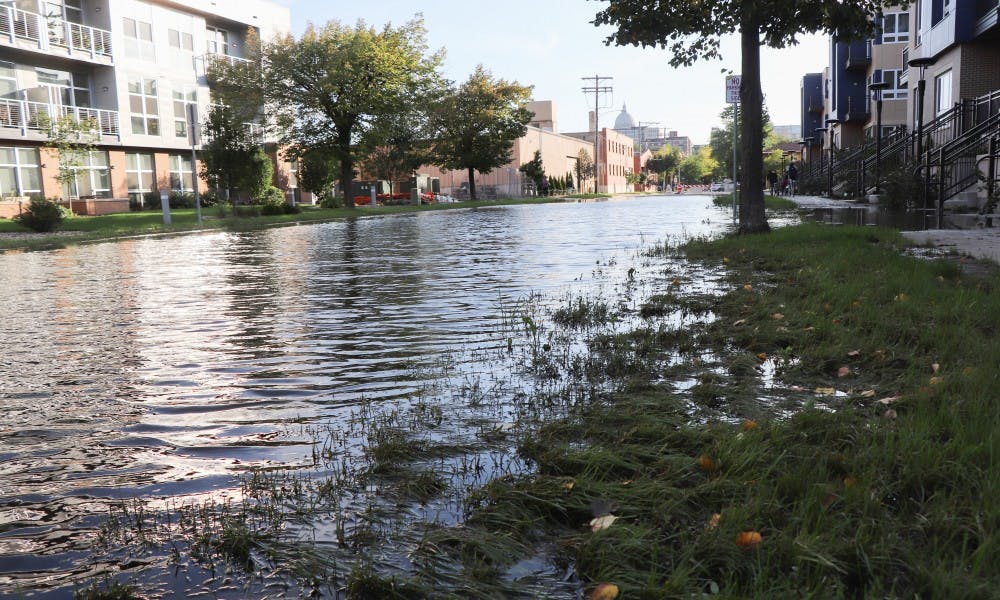Adding a flooded apartment to their list of back to school stressors is a challenge students across Madison are facing this fall when, a week after the last round of flooding, roads are still closed and parts of the city remain underwater.
Students who live in the neighborhoods surrounding Tenney Park and East Washington, parts of Middleton, off of Langdon and in many other areas of the city experienced flooding in their apartments and parking structures and are still grappling with the flood’s ensuing property damage and health risks.
But dealing with flooding becomes even more complicated when you live in a rental property. Teresa Mundo-Prado, program director for the Wisconsin Tenant Resource Center, shared advice on everything from working with city inspectors to filing for rent abatement for students who have been impacted by the flooding.
“The most important thing is that people understand that there will be things like this that happen. It’s nature and sometimes we can’t control that,” Mundo-Prado said. “But students should know the law and know their rights as tenants.”
The first thing Mundo-Prado recommends is that students who have experienced flooding contact their landlord and establish transparent, written communication early on. When landlords respond quickly and build open, cooperative relationships with their tenants, problems can be solved quickly.
If students are not satisfied with the way their leasing agencies have responded to their needs following a flood, the next step is to involve the city inspector.
“Don’t call the city inspector if your place is a little wet, if there is water coming in from the ground or the roof,” Mundo-Prado said. “Call your landlord first and if they don’t give you a reasonable answer for time that they are going to fix it, or if things are still getting wet, then you call the inspector.”
The city inspector should respond to a renter’s call within 24 hours, although the department can be backlogged when flooding happens on a large scale. The inspector will issue the renter and the landlord a damage report and create a timeline for the landlord to make repairs. If a landlord fails to meet the deadline, they could be fined and penalized by the city.
Depending on the extent of the damage, renters may also be legally entitled to rent abatement, or rent that is reduced until the damage is repaired. In some cases, a constructive eviction — or a mutual lease breaking — may be an option as well.
If a solution can’t be reached between tenants and their landlords, Mundo-Prado recommends tenants bring their complaints before a small claims court.
“If the place is not habitable, and you can prove that it’s not habitable, you can receive rent abatement or a constructive eviction,” Mundo-Prado said. “ If you’re in a position where the place you live in is all wet, that’s not habitable.”
By law all renters are entitled to habitable living conditions. To quote the state statute, housing that is “not decent, safe and sanitary,” is not considered habitable.
But the most productive thing Mundo-Prado said that renters can do is to be prepared before a flood happens. This means doing their research, reading their leases and even seeking renters insurance. She added that her agency is a resource students can always turn to.
Don’t be afraid to ask questions and be informed as to what your rights as a tenant are,” Mundo-Prado said. “Just because a landlord or a person of authority told you something, or because something is written on your lease, doesn’t mean it’s the law.”






